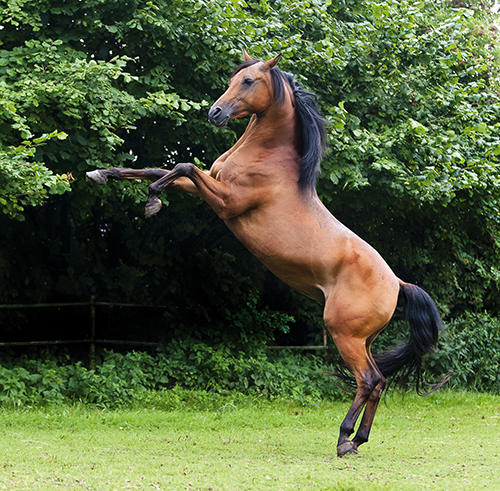 Dr Debbie Marsden, a leading equestrian expert with over 20 years professional experience of expert witness work, offers some advice on selecting the right expert in cases involving animals
Dr Debbie Marsden, a leading equestrian expert with over 20 years professional experience of expert witness work, offers some advice on selecting the right expert in cases involving animals
In animal related cases, a veterinary surgeon is often the best expert, being generally regarded as an authority on animals and easily recognized by the word 'veterinary' – a protected title – and the letters MRCVS (Member of the Royal College of Veterinary Surgeons) after various degrees.
As with all professions, when seeking an expert it is best to use a specialist; and vets are not allowed to describe themselves as a 'specialist' until they have taken considerable further study and been further examined in a particular area. The letter D or Dip, for Diploma, is the additional qualification to look for in a vet with particular expertise in any area, for instance DSAS – Diploma in Small Animal Surgery (Orthopaedics).
But beware! All vets are entitled to use the title 'Dr' without having carried out research or undertaken any further study, such as that which will have been done by the academic with a PhD degree, who is also entitled to use 'Dr'. Vets can also gain Certificate status in any particular discipline (for example Cert EP – Certificate in Equine Practice) when beginning their postgraduate interest, without necessarily having been further examined or undertaken a residency in any area. So do look for the 'D for Diploma' if wishing to instruct a veterinary expert with particular expertise in any specialism.
The Royal College has a list of vets who are 'recognised specialists' in all the various areas, available on the website at www.rcvs.org .
If the physical aspects of performance, welfare or movement patterns are important to your case, you may find a chartered veterinary physiotherapist particularly useful. Again, they are recognized by the protected title 'veterinary' and registered with a specialist organization such as ACPAT (Association of Chartered Physiotherapists in Animal Therapy) – listed on www.acpat.org.uk .
Many people assume that vets are also experts in animal behavior; but they are primarily experts in the diagnosis and treatment of disease, and actually taught very little animal behavior beyond that necessary to recognize a healthy animal, or various signs of illness or injury, and to give a basic welfare assessment. That assessment is mainly based on health – which is after all important, but not the only aspect of welfare to consider.
In animal welfare-related cases you should also consider using an animal behavior expert, ideally one who also has extensive experience in the day-to-day care of that species. After health, various freedoms – including 'from fear' and 'to express most normal patterns of behavior' – are embedded in how welfare is assessed in the UK.
If the behavior of an animal is key to your client's position, then an animal behavior expert will be more useful than a vet. That is also the case when the adequacy (or not) of any training, instructing, handling or management of the animal is in question. In particular, an animal behavior expert can usually answer the question “Why did the animal…?” and that can often greatly assist with assessment of cause and effect in, for example, personal injury cases.
There is a lot less regulation in the animal behavior industry; anyone can set themselves up as an 'animal behaviourist' and ply a usually very lucrative trade among distressed pet owners. There are no protected titles and no professional penalties for 'over-selling' or marketing yourself as a specialist or as having particular expertise.
There are also many experienced animal trainers who may be able to assist, but the safest option for expert witness work is to use a behavior consultant, behaviourist or counsellor, who is a member of a recognized professional body, such as for small animals the Association of Pet Behavior Counsellors. They are at least required to hold an appropriate degree and insurance, and their work is assessed by the organization before joining and being listed on www.apbc.org.uk.
For horses there is the Society of Equine Behavior Consultants, a professional and regulatory body where entry to the professional register is by examination after a considerable amount of specific postgraduate-level training and submission of portfolio work. Consultants must also hold public liability and professional indemnity insurance, prioritize safety and welfare in their work, offer the highest standards of customer service and stay up-to-date with required CPD – see www.sebc.org.uk .
So, if you reckon the Animals Act is complicated, animal 'experts' can be too; but hopefully this information will help to point you in the right direction and sort the sheep from the goats.


